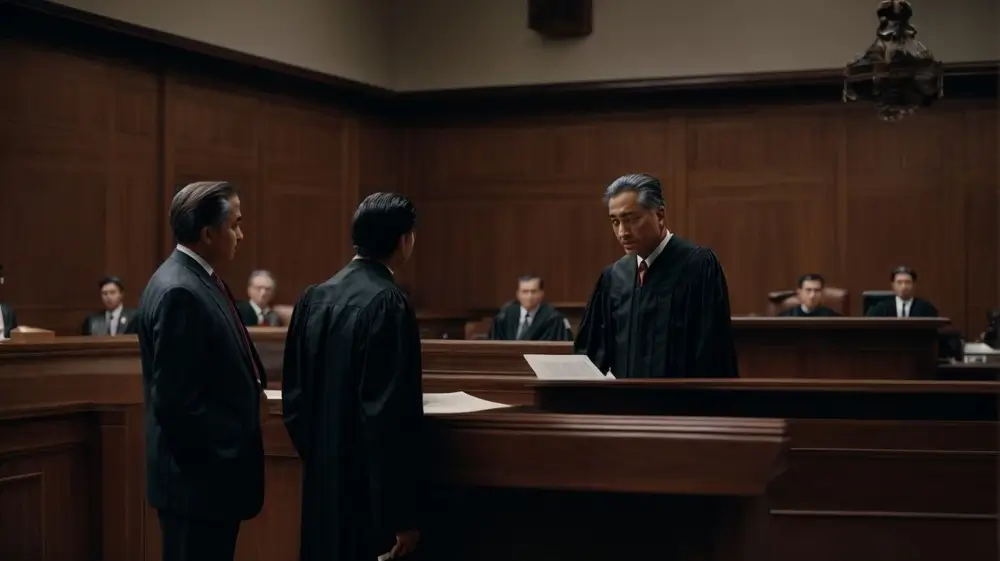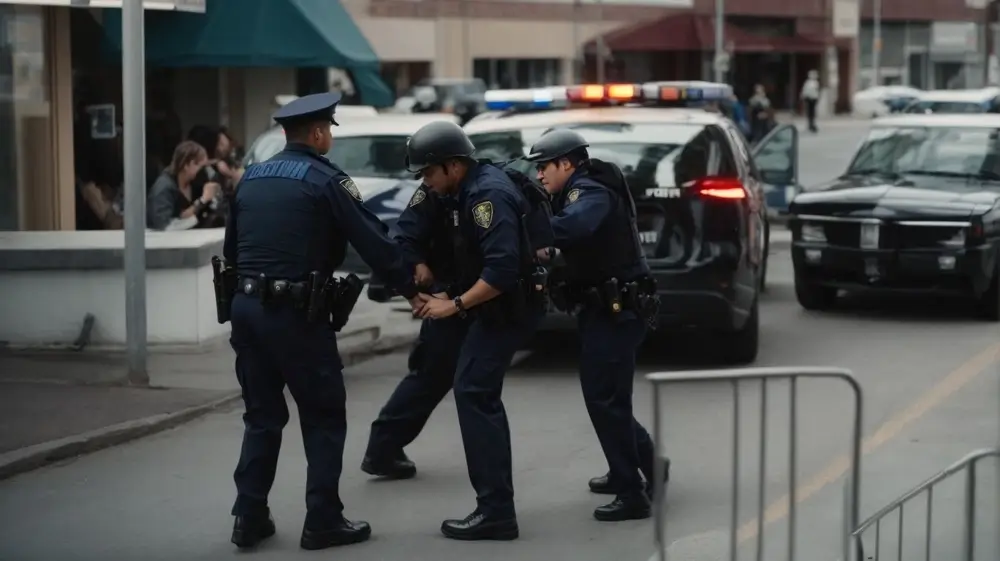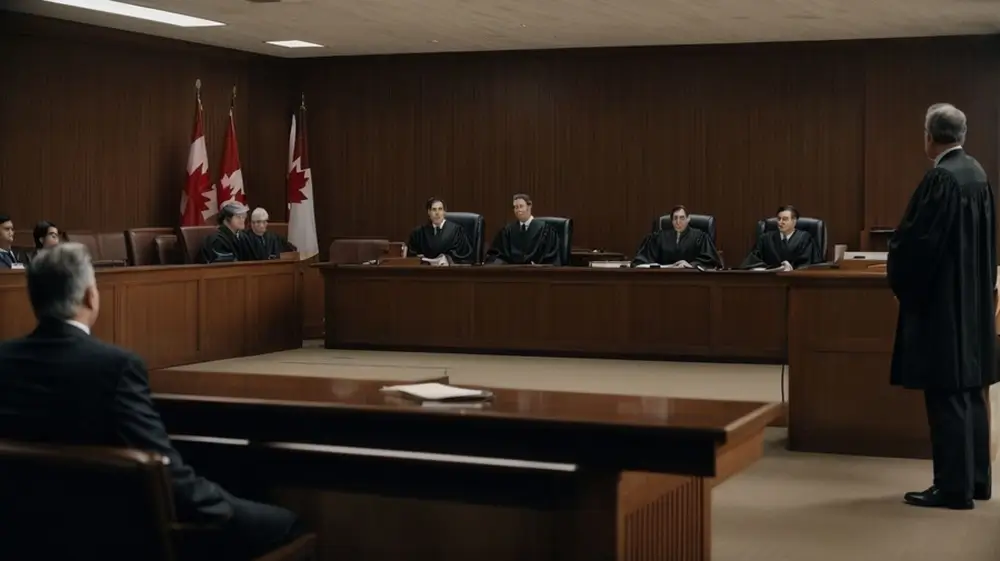Bail is a critical aspect of the Canadian legal system, allowing individuals awaiting trial to remain free while their case progresses through the courts. Understanding how bail works in Canada is essential, as it can have a significant impact on the lives of those involved in criminal proceedings.
In this comprehensive article, we will delve into the intricacies of bail in Canada, exploring its definition, the process for obtaining it, the different types available, and the factors considered when determining eligibility.
We will also examine the consequences of violating bail conditions, alternatives to traditional bail, what to expect at a bail hearing, and the rights of the accused in this context.
Whether you are a legal professional, a defendant, or simply interested in the Canadian justice system, this article will provide you with valuable insights into the workings of bail in Canada.
Key Takeaways:
Bail in Canada refers to the temporary release of an accused person from police custody while awaiting trial.
The process for obtaining bail in Canada involves a bail hearing where the court determines if the accused is eligible for bail and sets conditions for their release.
The factors considered for bail in Canada include the seriousness of the charges, the accused’s criminal record, and their likelihood of attending court hearings. Conditions may include restrictions on travel and communication.
How Does Bail Work in Canada?
Understanding how bail works in Canada is crucial for individuals accused of criminal offences as well as for the Canadian criminal justice system as a whole. Bail, as per the Canadian Charter of Rights and Freedoms and the Criminal Code, allows an accused person to be released from custody under certain conditions.
When an individual is charged with a criminal offence, the court assesses the likelihood of them appearing for their trial and the potential risk they may pose to the community if released. This evaluation is crucial in determining whether bail will be granted and at what set conditions.
The bail hearing is a pivotal part of this process, where the accused can present their case and propose suitable conditions for their release. The presiding judge considers various factors, including the severity of the alleged crime, the accused person’s criminal history, and ties to the community.
What Is Canadian Bail?

Bail, as defined by the Canadian government and stipulated in the Canadian Charter of Rights and Freedoms and the Criminal Code, refers to the temporary release of an accused person from custody pending their trial or other legal proceedings.
This legal process aims to uphold the presumption of innocence and ensures that individuals awaiting trial can resume their daily routines, work, and family responsibilities. Bail is contingent upon the accused complying with specified conditions, such as surrendering their passport, adhering to curfews, or refraining from contacting certain individuals.
The decision regarding bail considers the nature of the charges, the likelihood of the accused failing to appear for trial, and potential risks to public safety. Canadian courts carefully weigh these factors to determine whether granting bail is appropriate.
What Is the Process for Obtaining Bail in Canada?
The process for obtaining bail in Canada typically initiates after an accused person is arrested by the police, following which they may be released on an appearance notice or a summons, or brought before a judge for a bail hearing.
Upon arrest, the individual is taken into police custody, where they are informed of the charges against them. If the police decide to release the accused, they may issue an appearance notice or a summons, which outlines the date and location for the accused to appear in court.
Alternatively, if the police do not release the accused, they will be brought before a judge for a bail hearing, during which the judge will determine whether the accused should be released on bail and under what conditions.
What Are the Different Types of Bail in Canada?
The Canadian bail system encompasses various types of bail, including release on primary, secondary, or tertiary grounds, as well as the provision of a bail bond, recognizance, or an undertaking by the accused person.
When an individual is considered for bail in Canada, the primary ground for release is the assurance that they will attend court proceedings and not interfere with the administration of justice.
Secondary grounds, on the other hand, address concerns related to public safety and the protection of the community. In some cases, tertiary grounds focus on preventing the accused from committing further offences or intimidating witnesses.
Along with these grounds for release, the accused may be required to provide a bail bond, which involves a financial commitment to ensure their compliance. Recognizance, on the other hand, entails a pledge to abide by specific conditions set by the court, without the need for a financial undertaking.
Undertakings, meanwhile, may include specific requirements such as reporting regularly to law enforcement, staying away from certain locations or individuals, or refraining from consuming alcohol or drugs.
What Factors Are Considered for Bail in Canada?

Numerous factors come into consideration when evaluating bail in Canada, including the nature of the alleged offence, the strength of the evidence, and the burden of proof, as well as the potential imposition of recognizance and specific conditions.
The defendant’s criminal history, ties to the community, and likelihood of appearing for trial are also key aspects taken into account.
The assessment may involve weighing the potential risk to public safety and the probability of the defendant interfering with witnesses or tampering with evidence.
The presiding judge or justice may also consider the defendant’s employment status, mental health, and substance abuse issues in determining the appropriateness of granting bail.
What Are the Criteria for Bail in Canada?
The criteria for bail in Canada are delineated by the Canadian Charter of Rights and Freedoms and the Criminal Code, encompassing considerations related to the primary, secondary, and tertiary grounds for release, as well as the nature and strength of the evidence against the accused person.
Under the primary grounds for bail, the court examines whether detaining the accused is necessary to guarantee their attendance in court. Additional factors include ensuring the protection and safety of the public and preventing the accused from interfering with the administration of justice.
When evaluating the secondary grounds, the court considers the potential for the accused to commit further offenses or obstruct the court process. Tertiary grounds for bail involve weighing the likelihood of the accused not showing up for trial, the protection of the public, and maintaining confidence in the justice system.
What Are the Conditions of Bail in Canada?
The conditions of bail in Canada encompass a range of requirements imposed on the accused person, including the provision of recognizance, adherence to specific conditions, and the undertaking of certain obligations as stipulated by the court.
Recognizance, in the context of bail, refers to the accused person’s pledge to appear in court when required and comply with the terms set by the court. These terms may include refraining from contacting certain individuals, avoiding specific locations, and even adhering to curfews.
Accused individuals may be required to report to law enforcement regularly or surrender their passport to prevent flight risk. Non-compliance with these court-imposed conditions of bail can lead to severe consequences, including revocation of bail and possible detention until trial.
What Happens If Someone Violates Their Bail Conditions in Canada?

If there is an accused person violating their bail conditions in Canada, serious consequences may ensue, potentially leading to legal repercussions and the revocation of their bail, thereby affecting their legal status and the progression of their case.
When an individual breaches their bail conditions, it is considered a violation of the court’s trust and can result in an immediate arrest. The court takes such breaches very seriously, and the accused may face additional criminal charges related to the breach. Their chances of getting bail in the future may diminish, and the court may impose stricter conditions if bail is granted again.
The violation can also result in the seizure of any surety posted for the bail, impacting the accused and their surety financially. The accused’s credibility may be undermined, resulting in a negative impact on their case’s outcome.
What Are the Alternatives to Bail in Canada?
Apart from traditional bail, Canada offers alternative avenues for release, such as the provision of a surety, recognizance, or a promise to appear, each serving as viable options for individuals involved in legal proceedings.
In the context of a surety, a person known as the ‘surety’ agrees to take responsibility for ensuring that the accused complies with the conditions set by the court. Recognizance, on the other hand, involves a formal obligation made by the accused with the court, often without the need for financial deposit.
A promise to appear, commonly utilized in minor offenses, allows the accused to be released without depositing any funds, with the understanding that they will attend their court appearances.
Who Can Be a Surety in Canada?
A surety in the context of Canadian bail procedures entails an individual who assumes the responsibility of ensuring the accused person complies with their bail conditions, often involving the provision of a financial undertaking to the court.
This important role demands that the surety has a thorough understanding of the legal obligations associated with undertaking bail conditions. They must actively monitor and supervise the accused to ensure compliance with the terms set by the court.
Should the accused fail to meet their obligations, the surety may be called upon to pay the specified amount or forfeit assets pledged as security for the bail.
The surety’s commitment requires a substantial level of trust in the accused’s willingness to adhere to the conditions, as well as the ability to maintain constant communication and supervision. The surety’s responsibilities extend to appearing in court as required and ensuring the accused does the same.
What Is a Recognizance?
A recognizance constitutes a formal commitment made by the accused person to the court, pledging to adhere to specified bail conditions and obligations as per the Canadian Criminal Code and the legal framework governing release.
When an individual is released on recognizance, they are required to uphold their promise to the court, which typically includes refraining from contacting certain individuals, not leaving a specified geographical area without permission, and attending all court proceedings.
The accused may be obliged to deposit a specified amount of money as a security to ensure their compliance with the imposed conditions, thereby enhancing the seriousness of the commitment.
What Is a Promise to Appear?
A promise to appear involves the accused person committing to attend court proceedings as required, thereby functioning as an alternative form of release within the Canadian bail system, underpinned by legal commitments and obligations.
When a defendant provides a promise to appear, they are essentially undertaking to present themselves at all designated court dates, fostering accountability and ensuring the progression of judicial processes.
Promises to appear are not a casual arrangement; they carry significant weight in the eyes of the law, reflecting the individual’s recognition of the seriousness of the charges against them and their willingness to comply with legal expectations.
Fulfilling this obligation is crucial, as non-compliance can lead to severe repercussions, such as the revocation of bail and potential additional charges.
What Happens at a Bail Hearing in Canada?
During a bail hearing in Canada, a judge evaluates the evidence and circumstances to determine whether the accused person should be released, considering the implications of bail conditions and the overall administration of justice.
At the bail hearing, the accused person’s legal team presents arguments supporting their release, while the prosecution provides evidence of flight risk or potential danger to the community.
The judge carefully considers these presentations and applies a legal standard to assess the strength of the evidence and the likelihood of the accused person appearing for trial if released.
Factors such as ties to the community, employment status, criminal history, and the nature of the offense are weighed in the decision-making process. The judge’s determination aims to balance the accused person’s rights and the protection of the public, with an overarching commitment to uphold the principles of justice.
What Are the Rights of the Accused When It Comes to Bail in Canada?

In Canada, the rights of the accused in the context of bail proceedings are safeguarded by the Canadian Charter of Rights and Freedoms and the legal framework outlined in the Criminal Code, ensuring access to justice and legal representation throughout the bail process.
Under the Canadian Charter of Rights and Freedoms, individuals have the right to be presumed innocent until proven guilty, and this presumption extends to the bail process, allowing accused individuals the opportunity to secure their release before trial. Legal representation is crucial during bail hearings, as lawyers can advocate for the accused’s rights and present compelling arguments for their release. The Charter also protects against unreasonable detention, emphasizing the importance of fair and timely bail hearings to prevent unnecessary incarceration.
The Criminal Code provides specific provisions governing bail, ensuring that the process remains fair and transparent. The Code outlines the factors that courts must consider when determining bail, including the defendant’s criminal record, ties to the community, and the likelihood of appearing for trial. The Code sets out the conditions that can be imposed on bail to ensure public safety while respecting the rights of the accused.
Frequently Asked Questions
How Does Bail Work in Canada?
Bail is a legal process that allows a person who has been arrested and charged with a crime to be released from custody while they await their trial. In Canada, bail is governed by the Criminal Code and varies slightly depending on the province or territory.
Who is Eligible for Bail in Canada?
Generally, anyone who has been arrested and charged with a crime in Canada is eligible for bail. However, there are certain circumstances where a person may be denied bail, such as if they have a history of failing to appear in court or if they are considered a flight risk.
How is Bail Set in Canada?
The amount of bail set in Canada is determined by the judge or justice of the peace. They will take into consideration factors such as the seriousness of the crime, the person’s criminal record, and whether they are a flight risk. The purpose of bail is to ensure the person will return to court for their trial.
What Happens if Bail is Denied?
If a person is denied bail, they will remain in custody until their trial. However, they have the right to appeal the decision and a bail review hearing will be scheduled. This allows the person to present new evidence or arguments in support of their release.
Can Bail Conditions be Imposed?
Yes, the judge or justice of the peace may impose certain conditions on a person’s release on bail. This can include things like surrendering their passport, staying away from certain people or places, and regularly reporting to a bail supervisor. These conditions are meant to ensure the person’s compliance with the bail order.
What Happens if a Person Fails to Comply with Bail Conditions?
If a person fails to comply with their bail conditions, they may be arrested and brought back to court for a bail revocation hearing. At this hearing, the judge will determine if the person’s bail should be revoked and if they should be returned to custody until their trial.

